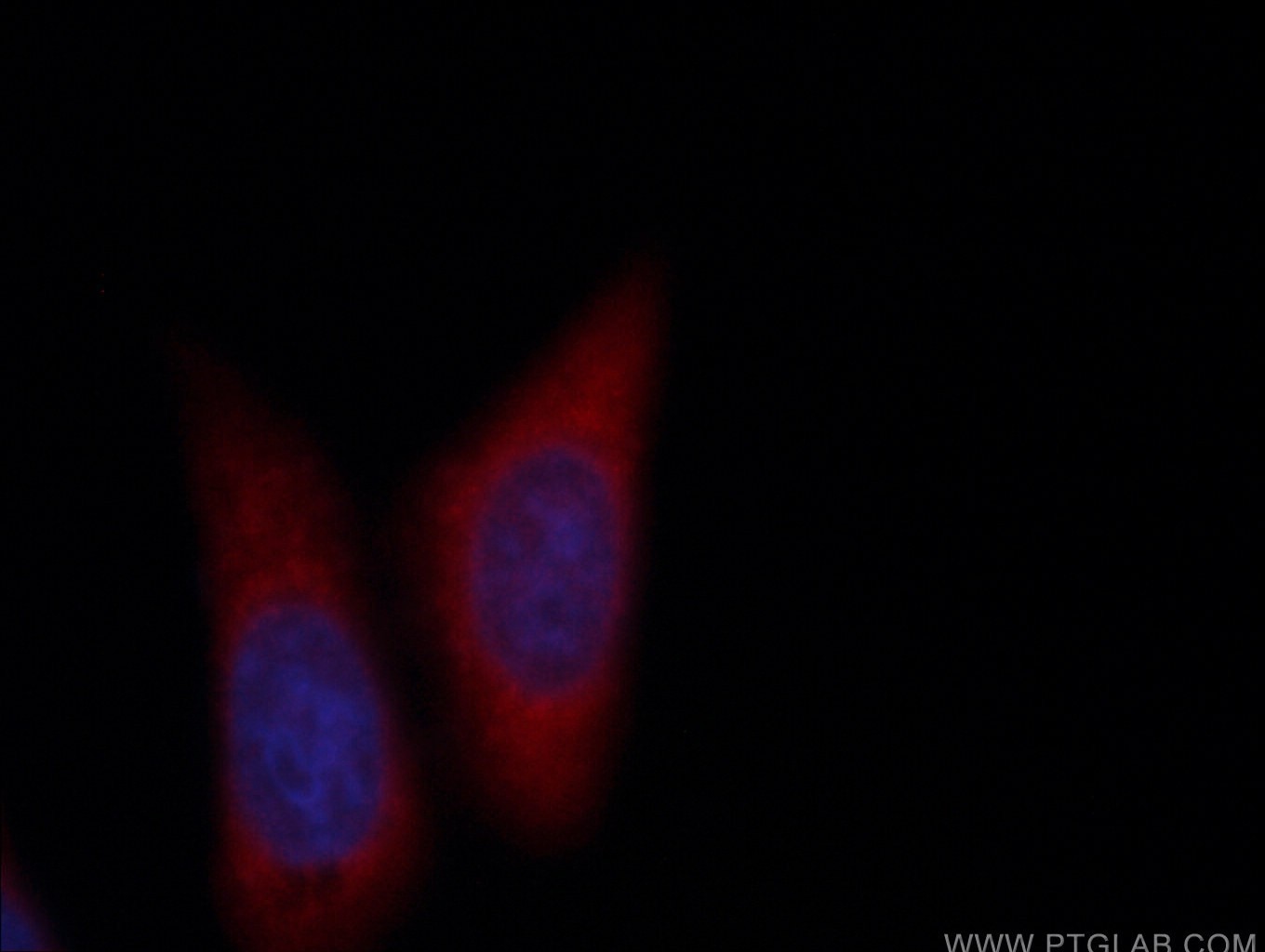Tested Applications
| Positive IF/ICC detected in | HepG2 cells |
Recommended dilution
| Application | Dilution |
|---|---|
| Immunofluorescence (IF)/ICC | IF/ICC : 1:50-1:500 |
| It is recommended that this reagent should be titrated in each testing system to obtain optimal results. | |
| Sample-dependent, Check data in validation data gallery. | |
Product Information
CL594-66339 targets RAB5A in IF/ICC applications and shows reactivity with human, pig samples.
| Tested Reactivity | human, pig |
| Host / Isotype | Mouse / IgG2b |
| Class | Monoclonal |
| Type | Antibody |
| Immunogen |
CatNo: Ag16781 Product name: Recombinant human RAB5A protein Source: e coli.-derived, PET28a Tag: 6*His Domain: 1-215 aa of BC001267 Sequence: MASRGATRPNGPNTGNKICQFKLVLLGESAVGKSSLVLRFVKGQFHEFQESTIGAAFLTQTVCLDDTTVKFEIWDTAGQERYHSLAPMYYRGAQAAIVVYDITNEESFARAKNWVKELQRQASPNIVIALSGNKADLANKRAVDFQEAQSYADDNSLLFMETSAKTSMNVNEIFMAIAKKLPKNEPQNPGANSARGRGVDLTEPTQPTRNQCCSN Predict reactive species |
| Full Name | RAB5A, member RAS oncogene family |
| Calculated Molecular Weight | 215 aa, 24 kDa |
| GenBank Accession Number | BC001267 |
| Gene Symbol | RAB5A |
| Gene ID (NCBI) | 5868 |
| RRID | AB_2883562 |
| Conjugate | CoraLite®594 Fluorescent Dye |
| Excitation/Emission Maxima Wavelengths | 588 nm / 604 nm |
| Form | Liquid |
| Purification Method | Protein A purification |
| UNIPROT ID | P20339 |
| Storage Buffer | PBS with 50% glycerol, 0.05% Proclin300, 0.5% BSA, pH 7.3. |
| Storage Conditions | Store at -20°C. Avoid exposure to light. Stable for one year after shipment. Aliquoting is unnecessary for -20oC storage. |
Background Information
Rab5a belongs to the Rab GTPases family proteins, which play roles in endocytosis, exocytosis, and vesicular transportation. Rab family proteins were recently reported to play important roles in human cancer progression. Rab5a was reported to be overexpressed in breast and ovarian cancers and associated with proliferation and invasion. This anitbody is CL594(Ex/Em 593 nm/614 nm) conjugated.
Protocols
| Product Specific Protocols | |
|---|---|
| IF protocol for CL594 RAB5A antibody CL594-66339 | Download protocol |
| Standard Protocols | |
|---|---|
| Click here to view our Standard Protocols |




